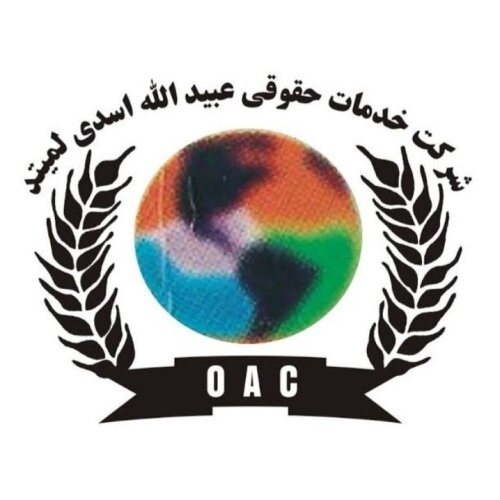Best Corporate & Commercial Lawyers in Kabul
Share your needs with us, get contacted by law firms.
Free. Takes 2 min.
List of the best lawyers in Kabul, Afghanistan
About Corporate & Commercial Law in Kabul, Afghanistan
Corporate and commercial law in Kabul, Afghanistan, covers the legal rules, regulations, and practices governing businesses and commercial transactions. This field encompasses the creation, management, operation, and dissolution of companies as well as the laws that apply to commercial contracts, transactions, partnerships, mergers, acquisitions, and foreign investment. Legal frameworks are primarily guided by the Afghan Civil Code, Commercial Code, and specific legislative acts adopted over recent years, aimed at promoting economic development and foreign investment in the country.
Why You May Need a Lawyer
There are several situations where seeking legal advice for corporate and commercial matters in Kabul may be essential. Some common scenarios include:
- Setting up a business entity - understanding the requirements for registration and compliance
- Drafting or reviewing commercial contracts to protect your rights
- Resolving business disputes, whether with partners, suppliers, or customers
- Handling mergers, acquisitions, or joint ventures
- Complying with foreign investment regulations and securing necessary permits
- Intellectual property protection, including trademarks and patents
- Employment law issues within your company
- Tax planning and compliance
- Dissolving or restructuring a business
- Ensuring adherence to anti-corruption and anti-money laundering rules
The legal landscape can be complex and navigating the correct procedures or understanding the laws often requires the knowledge of a qualified corporate and commercial lawyer.
Local Laws Overview
Business operations in Kabul are governed by both national and local legal frameworks. Some of the key aspects include:
- Company Formation: The process is guided by the Afghan Commercial Code, which defines various types of business entities such as sole proprietorships, partnerships, limited liability companies, and public corporations. Registration with the Afghanistan Central Business Registry (ACBR) is mandatory.
- Licensing and Permits: Businesses require appropriate licenses from relevant ministries before beginning operations, and sector-specific regulations may apply.
- Foreign Investment: The Law on Domestic and Foreign Private Investment encourages foreign participation, requiring registration with the Afghanistan Investment Support Agency (AISA) and adherence to investment guidelines.
- Contract Law: Contracts are governed by the Civil Code and must adhere to Afghan and sometimes Sharia principles. Clarity and firm legal language are highly advised.
- Taxation: The Ministry of Finance administers corporate taxes, VAT, and other financial obligations. Businesses must be aware of their annual reporting duties.
- Employment Law: The Afghan Labour Law covers employment contracts, worker rights, and employer obligations, including working hours, wages, terminations, and benefits.
- Dispute Resolution: Commercial disputes can be resolved through local courts, arbitration, or mediation, though the process can be lengthy and complex.
Staying compliant with these and other evolving rules is critical for business success and for avoiding legal complications.
Frequently Asked Questions
What are the common types of business entities in Kabul?
The most common are sole proprietorship, partnership, limited liability company (LLC), and public company. Each type has different formation, capital, and liability requirements under the Afghan Commercial Code.
How do I register a business in Kabul?
Registration occurs through the Afghanistan Central Business Registry (ACBR) and involves submitting an application, supporting documents, and paying the required fees. The process may also require sector-specific licenses.
What laws govern commercial contracts?
Commercial contracts in Kabul are regulated by the Afghan Civil Code and the Commercial Code. Key requirements include clarity, mutual consent, and adherence to Afghan legal norms.
Are there restrictions on foreign business ownership?
Foreigners are allowed to own businesses and invest under the Law on Domestic and Foreign Private Investment, provided that they complete the necessary registration and approvals with the Afghanistan Investment Support Agency.
What taxes do businesses face in Kabul?
Businesses must pay corporate income tax, value added tax (VAT), and other sector-specific duties. Tax compliance is monitored by the Ministry of Finance, and annual reporting is required.
How are commercial disputes resolved?
Disputes are usually addressed through litigation in local courts or through alternative dispute resolution methods such as arbitration or mediation, depending on contract provisions and the parties involved.
Is intellectual property protected?
Afghanistan has laws for trademark, copyright, and patent protection, but enforcement is still developing. It is important to register intellectual property and seek legal advice to protect rights.
What are the requirements for employment contracts?
Employment contracts must comply with Afghan Labour Law, clearly stating terms such as wages, working hours, holidays, and notice periods. Both parties should sign and retain copies.
Can businesses repatriate profits abroad?
Foreign investors are generally allowed to repatriate profits after fulfilling all tax obligations. Some restrictions and reporting requirements may apply depending on the sector and currency controls.
Are there anti-corruption laws businesses should know?
Yes, Afghanistan has several laws and regulations aimed at combating corruption and money laundering. Businesses should have compliance policies and maintain transparent records.
Additional Resources
For more information and support, consider reaching out to these resources:
- Afghanistan Central Business Registry (ACBR) - Handles business registration and licensing
- Afghanistan Investment Support Agency (AISA) - Assists with foreign and domestic investment
- Ministry of Commerce and Industries - Provides guidance on trade laws and business regulations
- Ministry of Finance - Administers tax laws and business taxation
- Kabul Chamber of Commerce & Industries - Offers support for local businesses
- Legal aid organizations and local law firms specializing in corporate and commercial law
Next Steps
If you are considering starting a business, facing a commercial dispute, or simply need guidance on corporate compliance in Kabul, it is important to:
- Gather all relevant documentation regarding your business or legal issue
- Research the specific laws or regulations applicable to your case
- Consult with a qualified corporate and commercial lawyer who understands Afghan laws and practices
- If possible, approach relevant government agencies for forms and procedural guidance
- Keep records of all interactions, contracts, and correspondence for future reference
Navigating the corporate and commercial legal landscape in Kabul may be challenging, but with proper legal advice and preparation, you can protect your interests and build a strong foundation for your business activities.
Lawzana helps you find the best lawyers and law firms in Kabul through a curated and pre-screened list of qualified legal professionals. Our platform offers rankings and detailed profiles of attorneys and law firms, allowing you to compare based on practice areas, including Corporate & Commercial, experience, and client feedback.
Each profile includes a description of the firm's areas of practice, client reviews, team members and partners, year of establishment, spoken languages, office locations, contact information, social media presence, and any published articles or resources. Most firms on our platform speak English and are experienced in both local and international legal matters.
Get a quote from top-rated law firms in Kabul, Afghanistan — quickly, securely, and without unnecessary hassle.
Disclaimer:
The information provided on this page is for general informational purposes only and does not constitute legal advice. While we strive to ensure the accuracy and relevance of the content, legal information may change over time, and interpretations of the law can vary. You should always consult with a qualified legal professional for advice specific to your situation.
We disclaim all liability for actions taken or not taken based on the content of this page. If you believe any information is incorrect or outdated, please contact us, and we will review and update it where appropriate.
Browse corporate & commercial law firms by service in Kabul, Afghanistan
Kabul, Afghanistan Attorneys in related practice areas.













